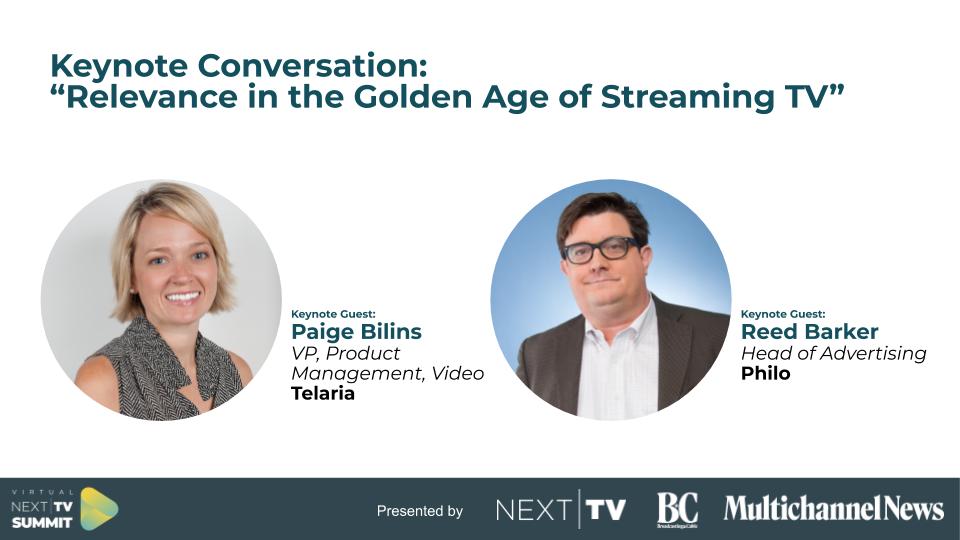Virtual NYC TV Week: Philo Sticks to Basics for Streaming Success
The smarter way to stay on top of the multichannel video marketplace. Sign up below.
You are now subscribed
Your newsletter sign-up was successful
Amid the thickening jungle that has become the over-the-top landscape over the past few years, it can be tough for an upstart streaming service to make a dent. But at Philo, a streaming service that launched back in 2017, head of advertising Reed Barker said success has been driven by three simple tenets -- good customer service, low prices and ease of use.
Philo offers 59 channels for about $20 per month, minus news, sports and local broadcast channels. Philo does not release subscriber figures (some estimates say they had about 50,000 customers in 2018). Barker said Philo grew customers last year at about a 10% monthly clip.
“This year it’s been an even larger explosion,” he said. “We had what we thought were very ambitious goals. Given what’s happened with current events and people streaming more... we’ve seen incredible subscriber growth that we’re hoping to continue with."

Speaking at an opening keynote session at the Future-produced Virtual Next TV Summit Thursday, Barker said strong customer service -- its customer satisfaction scores are in the 90%-plus range -- not charging for features like DVR and Look Back that other larger providers do and making content easy to find have led to success.
“We built a package that has everything included on it,” Barker told session moderator Paige Bilins, VP of product management at Telaria. “We’re not trying to charge extra for having what we think should be just the table stakes.”
Philo also serves as a complement to SVOD services like HBO Max, Disney+ and Peacock, Barker said.
“We don’t carry content from NBCUniversal, WarnerMedia or Disney/ABC,” Barker said. “It’s pretty easy to add a $6 Disney+ subscription to Philo.”
The smarter way to stay on top of the multichannel video marketplace. Sign up below.
For advertisers, Barker said the Philo approach is similar.
Barker said the key is listening to what its DSP partners and advertisers say they need to make advertising relevant all the way up the chain.
“Addressability doesn’t work if you’re doing something different from everyone or if you’re not trying to lead,” Barker said.
About six months ago Philo started adding genre, rating and runtime in the content signals for targeting, and has been working to build first party data segments based on its customer usage patterns. That allows advertisers to target a consumer who watches a lot of do-it-yourself programming not just on home shows, but in any program they are watching.
“So you’re able to find those targets that are relevant, not only in the context of what they’re watching, but in the context of what they’ve watched in their watch history,” Barker said. “We think that really helps with relevance, making sure you’re seeing an ad that isn’t annoying.”
The Virtual Next TV Summit, part of Future's Virtual NYC TV Week Spring, concludes May 1.
